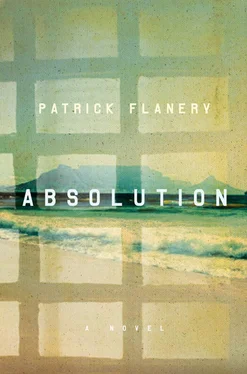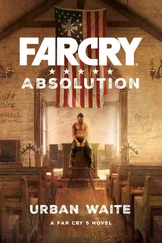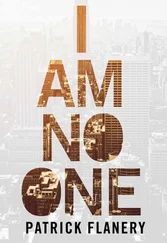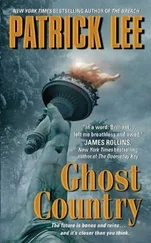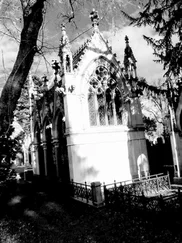I knew I had raised a radical when I discovered a file marked TOP SECRET hidden between your mattress and box springs — you must have been only thirteen or fourteen. Inside the file were handwritten transcripts of conversations you had overheard between your father and me and our visiting friends. Many dinner parties’ worth of conversations were there, recorded in your precise hand. In brackets, you summarized aspects of our dialogue that held no interest: ‘(They spend twenty-two minutes discussing Alan Paton)’; ‘(Tedious half an hour on La Guma)’; ‘(Who is Rick Turner?)’; ‘(Dinner begins with ten minutes talking about trips to the farm)’. What concerned you, what held your interest and moved your pen to write records of adult conversation unnerving in their accuracy, were the political discussions with our friends about all that we knew to be wrong, and what we thought should be done. Your father and I were often in agreement with each other, our friends not always so, as my more radical days had passed by that time. Some phrases you underlined in red, identifying the speakers when you knew who they were. I remember how I shivered when I began to discern a pattern that betrayed a position and an ideology: ‘non-violent protest is not taken seriously’; ‘but you must answer force with force’; ‘should we sit down or sit-in like the Americans while a holocaust is going on around us?’. The firebrands, the most outspoken amongst our closest friends, friends who were later banned, some of them forced into exile, some of them killed in detention, their words were the ones that you highlighted, not your father’s or my own more temperate beliefs. We were too passive, too pacifist for you, and beneath our least courageous demurrals you drew a wavy line in yellow marker pen, marking us as cowards and wafflers. I cried when I saw those yellow waves and understood by that mark what you thought of me.
I replaced the file in your bed and never spoke about it to you or your father, hoping that you would bend your sense of injustice, and what I now begin to understand was your sense of provocation, into something creative. (Where did that file go? I never saw it again after you left home, and did not find it among your effects after your disappearance.) It sounds like vanity to say I wished you would be like me, or indeed like your father, who channelled his rage into a passionate exploration, interrogation, and explication of the law. And so I rejoiced when you became a journalist, relieved that you could be outspoken on the page, and hoping beyond reason that you would do nothing to endanger yourself. You would do good! You would reveal injustice! You would fight with words!
On the rare occasions we saw you after your return to Cape Town, I remember how quickly you grew frustrated and angry. I could see you deciding that you had no choice but to do something more direct than report the news, the little you were allowed to tell. Instead, you would throw yourself into the inferno and rage as long as you could, burn as a holy fire, a flame of purgation running across this land, charring the blond grass black.
This is how I understand it: you felt you could not make yourself heard, you believed you had no choice but to act, to cap your pen and silence the keys of your typewriter, to let the ink dry and the ribbons decay, to leave the work of truth-telling limited and curtailed by the state to other, more patient people. I understand this decision. I understand that somehow your father and I raised a woman who was not content to do what was safe, least of all to do what she was told. I understand you felt you had no choice but to act.
But we never taught you to kill.
*
Turning to your notebook today I find a page devoted, inexplicably, to facts about Rick Turner, the philosopher and activist who, after nearly five years as a banned person, was assassinated in his home, killed by a bullet fired through a window. Finding notes about him here in your hand gives me a terrible, aching chill. Turner encouraged the activism of whites and I see in a flash how, although he was killed while you were still a child, his model and call to action might have been the nudge out of complacency that you needed, hurtling you straight into the armed struggle.
I wonder, though, if it can be that simple. Your notes are more a compilation of known facts about the case, and Turner’s unsolved murder, than the kinds of thoughts one takes down when inspired by a hero or martyr. It is almost as though you were preparing an in-depth investigation, as though you had discovered, at last, who Rick Turner was — not just a friend of a friend of the family, someone mentioned over dinner conversation at the time of his murder, but a man with a story of his own, a different kind of model for being white in this country than your father or I could ever manage to provide.
Sam had been awake for half an hour feeling restless in bed under the winter duvet that had emerged in recent days from the closet where Sarah was making space for his few clothes. She must have been awake too because when the phone rang she caught it on the first note.
May I say who’s calling? Her voice sounded throttled as it rose in pitch and she turned to him and spoke in a whisper, her brow corrugating: It’s the police. In Beaufort West. But I can’t really understand what the man is saying . The way she said Beaufort West made him smile. Each syllable was so clearly and roundly pronounced, Bow-Fort-West, at the same time that her voice fragmented into a series of clogged-sounding tones that were difficult to listen to. Then he realized what she was saying and he took the phone in his hands and felt as though she had passed him a weight heavier than conscience.
He did not have to ask her. She offered to come with him, to be sure he was not alone in facing what had happened. He would tell the faculty administrator that there was a serious situation at home and he would have to be away but would try to be back before the beginning of the spring semester.
A ‘situation’ was the safest thing to call what had happened. It meant not only the actions that had taken place but the location of those actions. It meant not just the house and the street and the town but also the region and province and country where his aunt lived and the relation of all those places to the locations around them, their state and condition, the areas further beyond them, and so on until the context became the whole world with a bright throbbing crime in a remote lower quadrant. In his mind all of it together was a specific situation and he could see it as if in a dramatic tableau masked with a scrim of suspended sand as fine as flour caught in the footlights. He knew he would see it when they approached the town from the west, the curtain of dust rising like hands from the yellow earth.
He had been looking forward to the holidays, and an escape to the heat of the southern hemisphere in the midst of the northern winter, even if that escape was only to the dry pan of the Karoo and the social torpor of Beaufort West, where days would pass in the company of his aunt and her friends, all wanting to hear news of his life abroad, eager for an escape themselves. Ellen had planned a trip to Plettenberg Bay for the New Year, and a stop in Prince Albert on the way back, because, she’d said, It always feels like spring there, no matter what time of year .
Lying in bed that morning, the phone still in his hand, he could feel the broken expectation of that escape raining down around him, and then he realized the rain was not just in his head but outside the window, a shower of ice that began to coat the glass, contorting their view of the traffic, the canary sludge of taxis, bleeding brake lights along West End Avenue.
Читать дальше
